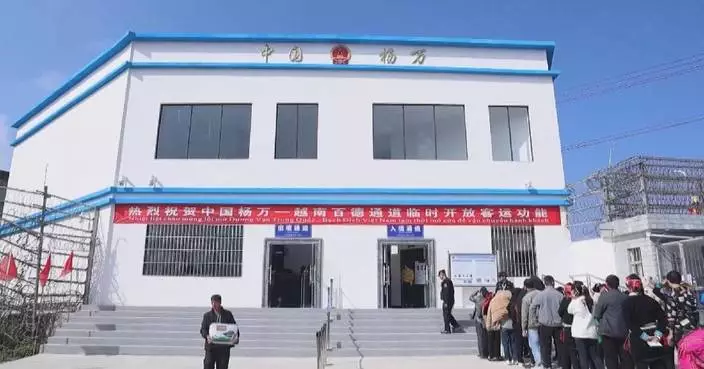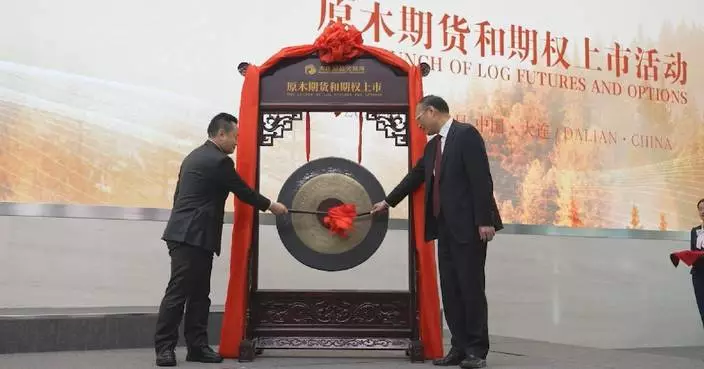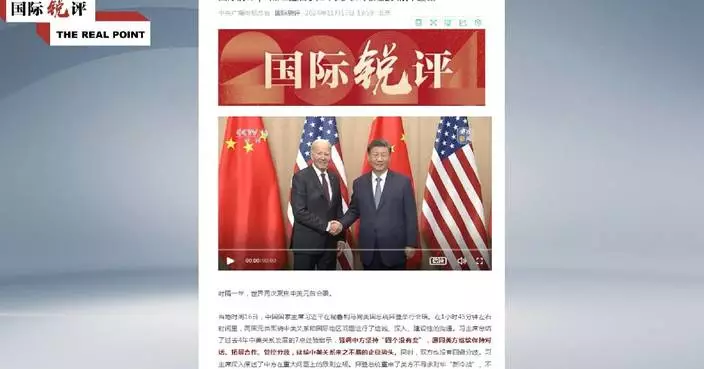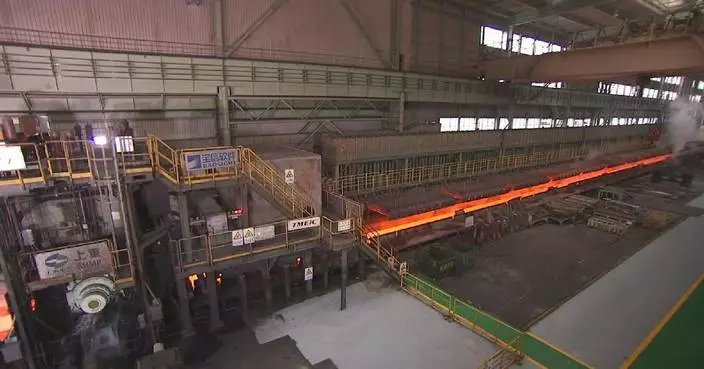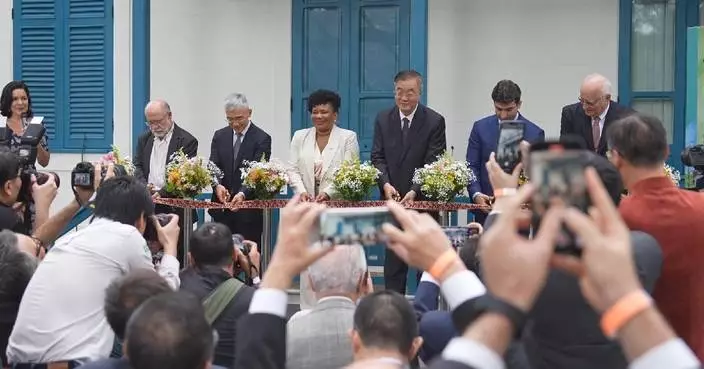Glamorous Brazilian city of Rio de Janeiro is set to host the 19th G20 Summit from Monday to Tuesday, which will welcome the global leaders and politicians with its unique natural splendors, enthusiasm and hospitality, in addition to the iconic football culture, beautiful beaches and artistic vibes.
Football has become a cultural symbol of the city where numerous enthusiasts gather to discuss and participate in the sport.
"We love football. We always have a friendly space to talk about the football in Brazil. I work all week, and I go to football, and I feel very well," said a local resident.
"The meaning of the football is to struggle against the problems. This is a way to connect ourselves with everybody," said another one.
Brazil is known as the Kingdom of Football and the winner of five World Cups. Rio de Janeiro has witnessed the growth of many world-class football stars like Zico and Ronaldo over the past decades.
The city boasts one of the largest football fields – Maracana Stadium, which was an important facility for the 2014 World Cup and the 2016 Summer Olympics. Many football enthusiasts come to the stadium every weekend to release their passion for the sport.
The Copacabana Beach in Rio de Janeiro, which boasts a beautiful coastal line, is a landmark of the city, where tourists can enjoy themselves in cozy sunshine and sea wind.
As a pillar industry in Brazil, tourism represents 7.7 percent of Brazil's economy, bringing the country a revenue of 165.4 billion U.S. dollars in 2023.
Strolling in the city, people can appreciate distinctive paintings and graffiti on the street, including a colossal mural near the Museum of Tomorrow drawn for the 2016 Summer Olympics, which has been recognized as the largest one in the Guinness World Records.
Meanwhile, the artistic atmosphere is permeating in various museums of the city, including the Museum of Modern Art, which will serve as the main venue for the G20 Summit.
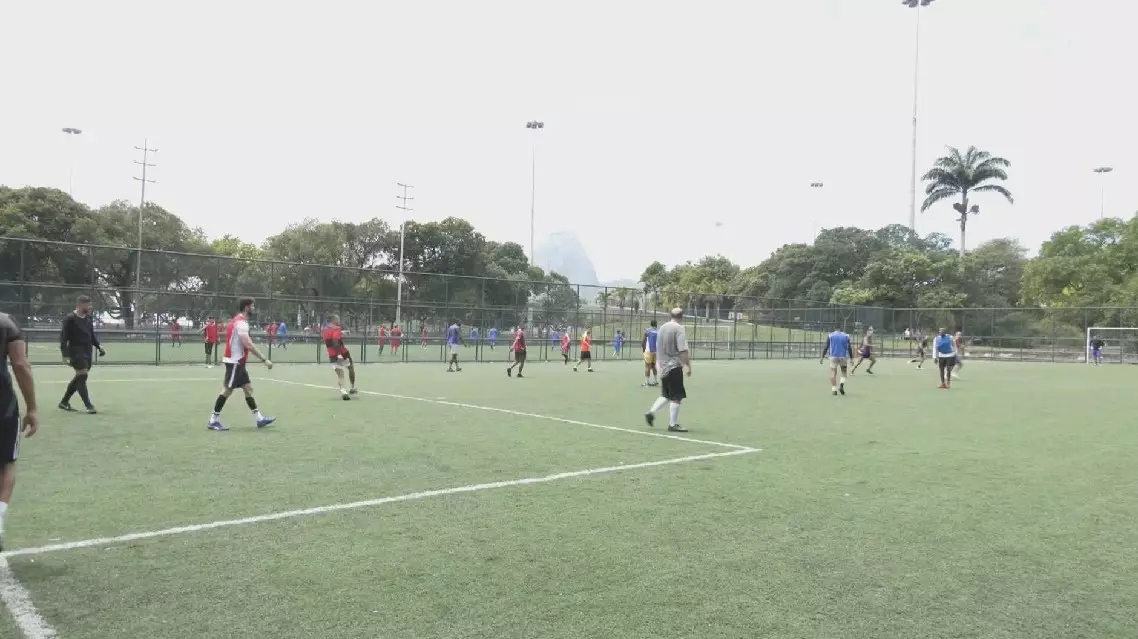
Rio de Janeiro to host 19th G20 Summit with unique glamors, artistic vibes
Marcelo Vergaray, a 31-year-old Peruvian agricultural engineer, has played an important part in the take-off of the blueberry industry in Mengzi City of southwest China's Yunnan Province since he finished university studies and decided to settle down in the country seven years ago.
Vergaray is the fourth generation of a Chinese family who emigrated from south China's Guangdong Province to Peru many years ago. He grew up in the South American country and graduated from the National Agrarian University in Lima in 2015.
The Peruvian youth came to China in 2017 to learn Chinese at the Hebei Normal University in the country's north. After 12 months of language studies, he took up the role of production manager at Hortifrut and Joyvio, a joint venture agricultural technology company between China and Peru, assisting blueberry cultivation with his expertise in Mengzi, a city in Yunnan's Honghe Hani and Yi Autonomous Prefecture.
"I've been living in China for almost seven, eight years. I'm an agriculture engineer. Our most important duty in our company is to develop an agricultural project. It includes how to start a project, how to manage the project, and then how to get into the market," Vergaray told China Central Television (CCTV) in an interview at a sprawling blueberry production base in Mengzi earlier this year.
Located on a low-latitude plateau, Mengzi is renowned for its abundant sunlight and temperature variations between day and night, with an average annual temperature of approximately 18 degrees Celsius. These conditions render the city exceptionally conducive to the cultivation of blueberries, distinguished by a long picking season that starts in November and lasts until late May or early June the following year. This harvest period strategically fills a gap in domestic and international blueberry markets.
"Our blueberries have a really high quality. It's a really high-quality product. I mean, of course, it has a good flavor, it's sweet, it's crunchy. We're talking about a really high-nutrition product, but as well, it's a product we have managed with high standards," Vergaray said.
For the past few years, Peruvian know-how in blueberry farming and the introduction of new berry varieties from the South American nation, coupled with the dedication of a team of Chinese and Peruvian agricultural technicians and experts, have significantly improved the fruit's quality and output at the base. Vergaray said his company is committed to bringing more blueberry products to both the Chinese and global markets going forward.
"It's seasonal work. We can harvest from November to May and then the rest of the year we prepare the plants for the next season. And also, we develop new areas, and also, we do all the management. It includes how to manage plants, and how to make it grow faster and better, and then also includes new areas," he said.
Since 2018, Mengzi has become one of China's primary production hubs for greenhouse-grown blueberries, with yields exceeding the national average. In 2023, the city produced 22,000 tons of fresh blueberries, with an output value of 2.04 billion yuan (about 280 million U.S. dollars), according to data from the Yunnan provincial government.
Outside work, Vergaray is an active participant in all kinds of Chinese cultural activities in his adopted home city while working hard to improve his Mandarin skills, saying that Mengzi has embraced him with open arms.
"I love Chinese culture. Although Mengzi is a relatively new city, I find the economy here has been growing quite rapidly. To me, the most important part of a city is the people. The folks here in Mengzi are very welcoming and warm to me. Mengzi is truly an open and inclusive city," he said.
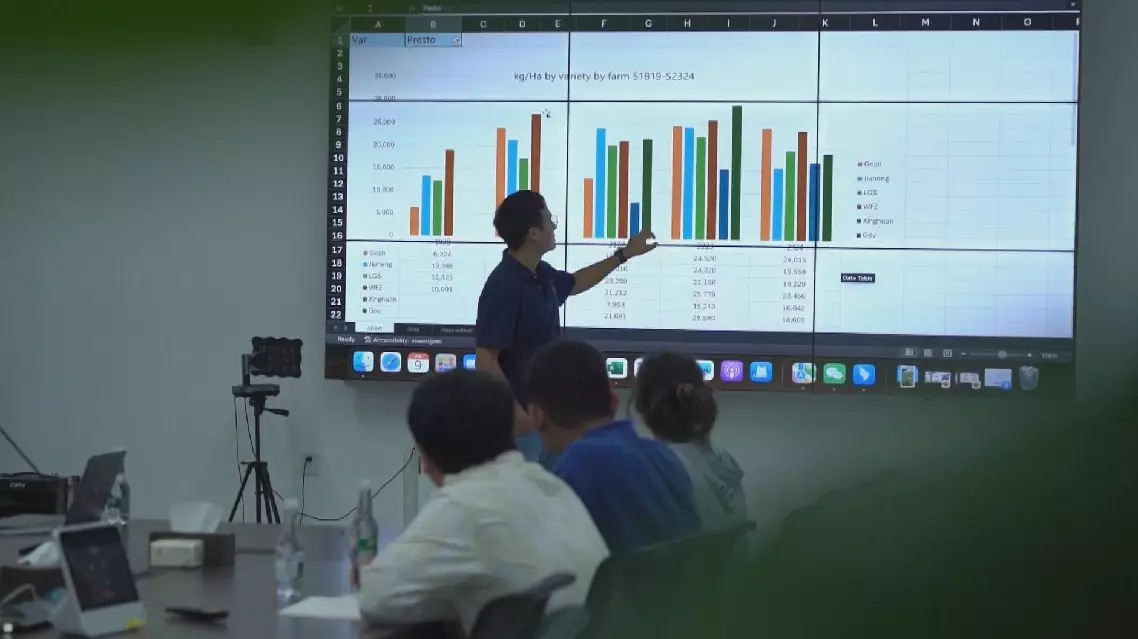
Peruvian agricultural engineer dedicated to blueberry cultivation in Yunnan




